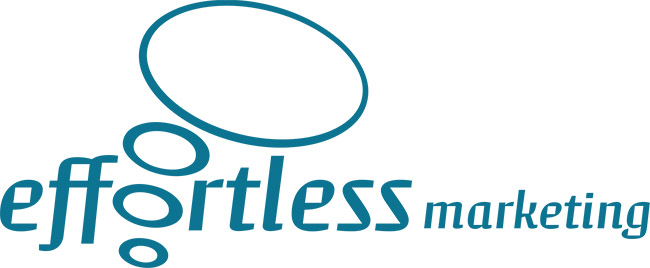One of the most common excuses I hear for and underperforming business is this;
“There just isn’t enough demand for my product/service.”
Let’s face it – when a business is failing it’s natural to want to lay blame. Unfortunately, if you blame your competitors, partners, suppliers, staff or processes then it’s tantamount to admitting that YOU failed. So who gets the blame – ‘demand’!
The truth is that demand has very little to do with your product and rarely anything to do with your price. Demand is that rather curious situation when customers just come flooding in, often with no apparent reason. So do you have any control over demand? Can demand be created?
Creating demand means achieving three goals:
- Providing VALUES that your customers want …and
- Ensuring that they only want it from YOU …and
- Ensuring that they want it NOW
VALUES
Notice that I say VALUES, not PRODUCTS or SERVICES. This is important. There are hundreds of mobile phones on the market but the demand at any given time will be for those models which provide certain values. Values might include:
- Functional values
- Style/fashion values
- Price/cost values
- Exclusivity values
The values that are important will vary depending on your target market. In the mobile phone example, ‘trendy’ phones with unique or fashionable designs will be in demand by one segment of the market (outgoing, socialising youngsters perhaps?) whilst complex phones with lots of extra functions will be in demand by another segment (business people perhaps?). The very latest model will command a high price from the early-adopters whose self-esteem and ego depends on it, and the cheapest will be in demand by those who, well, just realise that there’s more to life than having a fancy piece of plastic clamped to your ear.
PEDIGREE
Whilst values are critical to creating demand, your reputation as a supplier is also crucial. Most modern cars are reliable, comfortable and efficient, but that doesn’t stop customers from buying expensive BMWs rather than cost-effective Skodas. Equally once you’ve experienced the performance and reliability of a BMW, it is easy to say ‘I’ll buy from noone else’. Pedigree is a combination of qualifications, reputation and excellence which makes customers proud to have you as their preferred supplier.
URGENCY
Whilst value and pedigree are relatively easy to appreciate, the concept of urgency is a little more difficult. Almost every Christmas there is one toy that stands out as the must-have toy of the year. Everybody wants one. Prices rocket. Supply dries up. In short – demand soars. Why?
In part it’s about values. Something provides values that everybody wants at once and through a combination of short supply or a deadline (ie Christmas Day) everybody has to have one NOW. It is always amusing to see prices tumble from Boxing Day onwards.
VALUE, PEDIGREE, URGENCY. To suceed you have to have bring all three togther. One or two without the third just won’t do. Your product can provide great values, which people want right now, but if your competitor has a better reputation, you’ll be left on the sidelines. Equally you many be the best in your field and offer the best functionality but if there’s no urgency for the product you could be left twiddling your thumbs, waiting for the next sale.
Demand Creation Strategies
So how can we create these three magic elements?
Question one is simple:
Are you selling what the market wants?
- what VALUE am I providing? Remember FASHION / FUNCTION / EXCLUSIVITY / PRICE
- do any of my competitors provide this value?
- is it important to people to get this value?
- can I deliver this value and still make a profit?
It is usually better to focus on ONE KEY VALUE, rather than trying to meet all the values in your market. In fact, trying to be biggest, best, most exclusive and cheapest is often detrimental and rarely succeeds. Decide where your strength lies and pick the value that stands out.
Question two:
What makes me/my company the best choice?
- is it my experience/qualifications?
- is it my attention to detail/quality/customer service?
- is it to do with location/speed of delivery/ease of access?
- is it because I provide and exclusive service?
If you find it it difficult to answer this question – ask your customers!
Finally look at question three:
What deadlines are relevant to my product or service?
- is it date related – Christmas, Summer holidays, Valentines Day?
- is it time related – has to be delivered quickly or within a certain time frame?
- is it fashion related – people will want to be the first to have it
Once you determine the answer to those three questions, that must be your mantra for all your marketing and promotional campaigns.
Demand creation strategies:
Here are several simple activities you can use to create demand:
Offer trials and tasters – a free or discounted trial gives customers an incentive to try you out and experience your values for themselves . A trial may not be immediately profitable (although there are many ways of making it so) but will give you the opportunity to hammer home your demand creating arguments.
Become ‘best-in-class’ and making sure people know about it – if you have the time, resources and opportunity, demonstrate that you are best-in-class. Apply for membership of a professional body, aim to win an industry award or be recommended by a magazine or newspaper. There are always plenty of opportunities around if you look out for them. My local butcher’s claim to fame is that he won ‘Barbeque Sausage Champion of 2003’!
Are you exclusive enough? Not every business wants or is able to be exclusive, but if you think you have something unique, then promoting youself as ‘exclusive’ is a simple way to create demand AND increase prices at the same time. Make sure you tell everyone about the things that make you genuinely unique and stress the fact that there is limited time or quantity. If you’re the only resturant in town with a Cordon Bleu qualified chef then shout about it. If he/she only cooks on Fridays – don’t waste that opportunity to be exclusive!
Create URGENCY by making your offers IMMEDIATE. Put on a special offer which must be booked within a certain time frame – before, say, August 5th, by the end of the month, by midnight tonight! Special offers should always be qualified with a ‘book by’ or ‘offer ends on’ caveat.
Change aspects of your product or service regularly to differentiate from previous versions. If you’ve never done it in black before then why not introduce a black one – for one month only! Add a little something extra, but only for orders received this week.
Are your customers keeping you a secret or spreading the word? Improve your reputation by encouraging customers to spread the word.

